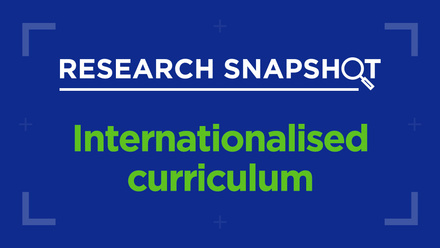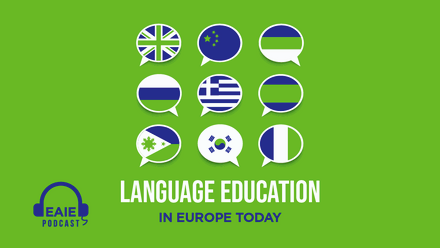Building meaningful relationships with the global competency core

In a globalised world, migration is creating societies that are culturally and linguistically diverse. International political cooperation is more frequent, information is rapidly shared across international boundaries, and economies are interconnected via trade. In this world, global competencies matter.
Universities are being challenged to develop their students’ global competencies. To do so, they are embedding engagement and interaction in their curricula that allow students to experience, listen to and express perspectives with fellow students, professors and staff.
The core of these global competency skills are the healthy building blocks for developing successful relationships. Essentially, in promoting global competencies, we are promoting the capacity of individuals to develop and sustain successful relationships.
What are global competencies?
Global competencies are variously defined around the world. The PISA framework defines these in relation to four dimensions – examining issues, understanding perspectives, interacting and acting – while the Center for Global Education at the Asia Society describes its four global competency dimensions as “investigate the world, recognise perspectives, communicate ideas and take action”. The US Department of Education refers to yet another four considerations – collaboration and communication, world and heritage languages, diverse perspectives, and civic and global engagement.
In promoting global competencies, we are promoting the capacity of individuals to develop and sustain successful relationships
Global competencies are thus the transversal skills needed in a globalised world, which cut across all areas of study. While there is some discussion about what exactly these global competencies are, most discussion revolves around four key issues:
- Curiosity – especially when considering differences
- Perspective-taking and accepting differences in perspectives
- Effectively communicating with people with differing perspectives
- Taking action towards the common good
Perspective-taking & effective communication
Perspective-taking and effective communication deserve special consideration. Perspective-taking is the deep understanding that we all have our point of view and others do not necessarily share it, while effective communication is the ability to listen, talk and interact with others.
To understand, analyse and appreciate others’ perspectives, one must first recognise that one’s thoughts, behaviours and emotions are deeply influenced by one’s national, regional and local culture, by one’s family and by one’s experiences. This means that we need to first know who we are, what we need and why we behave the way that we do and then attempt to anticipate the positive and negative consequences of our behaviours before we start interpreting the behaviours of others. In short, if we are to understand and appreciate others’ perspectives, we need to first understand and appreciate our own perspective.
Being genuinely interested in the ideas of others is a driving force behind effective communication
To know the self and the other, we need to communicate with others. Indeed, engaging in open and appropriate interactions with others is about effective communication – and effective communication is about being clear about the needs of the self and others and ensuring that both needs are attended to. Being genuinely interested in the ideas of others is a driving force behind effective communication.
Teaching and measuring global competencies
What does teaching in relation to perspective-taking and effective communication look like, and what tools do we have to measure development in these areas?
The Self-Reflection and Insight Scale is a good measure of perspective-taking. This scale rests on the idea that purposeful progress towards a goal rests on your ability to monitor your progress to improve performance. This requires self-reflection and self-evaluation, which in turn requires insight. Essentially, this scale measures the ability to understand the self, and the causes and consequences of one’s behaviour.
The Mutual Psychological Development Questionnaire is a good measure of effective communication. This scale rests on the idea that truly effective communication relies on empathy, engagement, authenticity, zest, diversity and empowerment. Effective communication is thus understood as fundamental for positive social interactions with people expressing their beliefs and needs, asking questions about the beliefs and needs of others, while being open to changing one’s mind.
If the core of global competencies is the ability to develop and sustain meaningful relationships, then universities need to create and promote an environment where that can happen. The OECD and the Asia Society’s Center for Global Education’s ‘Teaching Global Competence in a Rapidly Changing World’ support excellent discussions around what the term ‘global competencies’ means, and offer concrete ideas for teaching, developing, and assessing that development. From service-learning and community engagement to game-based learning and from organised discussions and debates to real-world project-based learning – the instructional approaches for developing global competencies are all student-centred, often student-led, and purposefully interactive and engaging.
Fostering open, appropriate and effective communication
The educational benefits of perspective-taking and effective communication can be found at the level of a student’s openness to diversity, as well as at the level of a student’s self-confidence and cognitive development. The educational benefits of teaching methods that promote global competencies is that all students (especially minority students) succeed.
Understanding and appreciating others’ perspectives and engaging in open, appropriate and effective communication with diverse audiences rests at the core of what global competencies are. As we are educating global citizens with global competencies, we are also educating people who are going to be better at developing and sustaining meaningful relationships – and that will make the world a better place.






